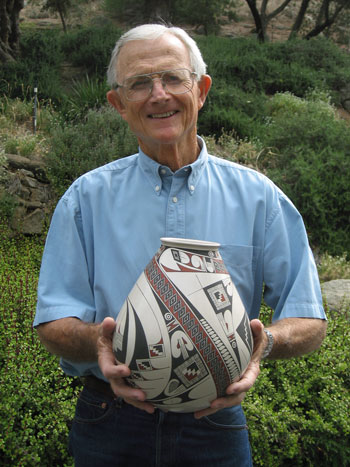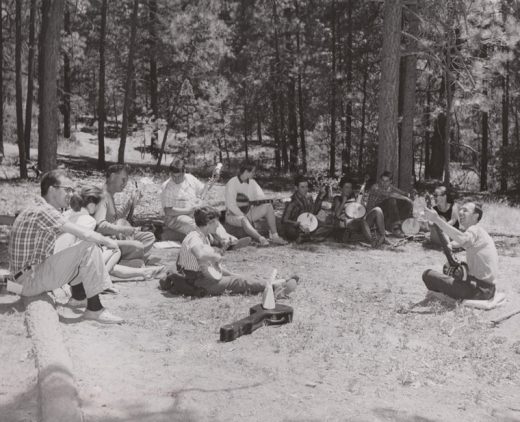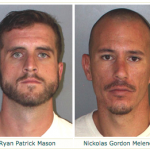
Photo courtesy Walter Parks
Walter Parks knows history and is a good story teller. Stanford B.A. and M.B.A. grad, he has long been associated with Idyllwild Arts, from its earliest days. He is well qualified to discuss the school and its evolution from its founding in 1946. The Idyllwild Arts Foundation is currently celebrating its 70th anniversary this year. He is a longtime IAF board member.
As Assistant Superintendent for Business for the Riverside School District, Parks also knows well the community of Riverside. He has served as a docent for the Mission Inn for nearly 40 years and has written two books about the iconic hotel and its colorful history. He has lectured both at the Mission Inn and at UC Riverside Extension about California history.
Parks is the next speaker for the Idyllwild Community Center’s Speaker Series, at 6 p.m. Thursday, May 19 at Silver Pines Lodge. He said he would organize his talk by decades since cultural tastes often affected and dictated the Idyllwild Arts Summer Program offerings.
“The ’50s were a very interesting time for the school,” said Parks. “It was a time both of repression [McCarthy and House Un-American Activities Committee] and of expression,” noted Parks. “And that was evident at the school’s campus with artists like Pete Seeger and Bella Lewitzky there for the first summer. These were artists cut out of the mainstream [for political views] who went to colleges and institutions for performance and residencies. What Idyllwild Arts was doing mirrored what was going on nationally.”
Parks spoke of the ’60s as a time of cultural transition that birthed an interest in crafts. That interest helped fuel the expansion of Summer Program curricula, with increased registration for courses in pottery, weaving and other crafts. Parks said that carried through to the ’70s. “Everyone was doing crafts and then, in the ’80s, it stopped,” he said. The ’80s became a ‘go go’ time when people were more interested in career and making money.”
That abrupt cessation affected Summer Program revenue. “The entire program was straddling because of the lack of interest in the craft offerings and classes that had been a mainstay of the summer,” he noted. “Classes were reduced and crafts for adults were eliminated because of the cultural shift.”
The University of Southern California owned the campus, with programs managed by the Idyllwild Arts Foundation, from 1963 through 1983. Parks explained that when the Summer Program began to struggle financially, USC took a hard look at the real costs of the Idyllwild campus ownership (about $300,000 annually according to Parks).
From the original agreement with USC, IAF had a right of first refusal should USC decide to sell. With help from donors, the IAF board reacquired the campus. From 1983 until 1985, the campus continued to struggle under IAF ownership and management.

Photo courtesy Sydney Cosselman, IA Krone Museum
In the mid-’80s, the school faced a pivotal moment. The choice, influenced by Bill Lowman who had been brought onboard as a consultant and key donor Dr. Richard MacNeal, was to complement the Summer Program and utilize the campus year-round by creating a residential arts school for students from grade 9 through grade 12. “It took a while financially but soon other donors stepped up to keep it going,” said Parks. “And as a result of the Academy’s steady growth and its growing reputation for educational excellence, the foundation now finds itself in the best financial shape ever. The Academy has, in many ways, become the dominant program, with primary focus on serving its students’ needs. The Summer Program continues strong in both program and attendance.
“It appears to me that in recent years the Academy has established itself as one of the premier educational institutions for young artists,” said Parks noting the ratio of many applications relative to space available.
“When you have students who want to be there, it makes such a difference. Our mission is to train each student to the highest point of their ability.”
Parks’ presentation is free to the community and all are welcome to attend.
Notwithstanding his eminent professional background and numerous volunteer activities, Parks is a humble man with a sparkling sense of humor. At the bottom of his résumé, he wrote, “He [Parks] has no qualifications for the subjects he speaks about and apologizes for any confusion.”










